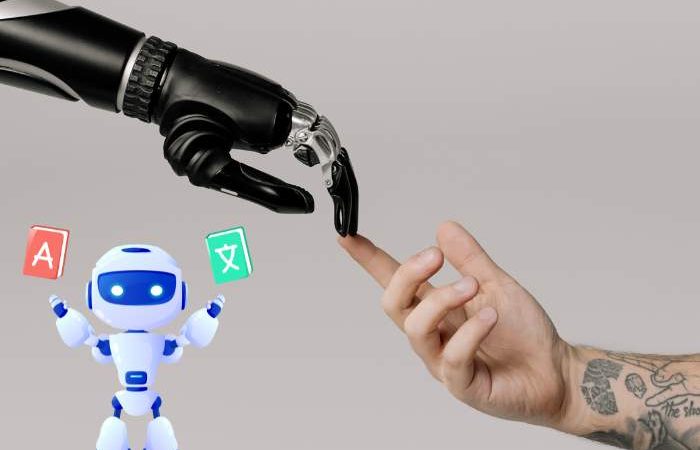
Artificial Intelligence and Job Displacement: Will Your Job Be Next?
In recent years, artificial intelligence (AI) has moved from science fiction into the very fabric of our everyday lives. From voice assistants like Siri and Alexa to self-driving cars and advanced data analytics, AI is transforming industries at a breathtaking pace. But as AI continues its march forward, a question looms large: Will your job be next on the chopping block?
The Rise of AI: A Double-Edged Sword
AI promises a future filled with efficiency, innovation, and new opportunities. But for many, that same future also carries the chilling prospect of job displacement. The unsettling truth is that AI isn’t just changing the way we work—it’s changing the very definition of work itself.
Consider this: a 2020 study by McKinsey & Company estimated that by 2030, as many as 375 million workers worldwide could need to switch occupations due to automation. That’s nearly 14% of the global workforce! And it’s not just factory workers or cashiers at risk—AI is coming for jobs in industries once thought immune to automation.
The Professions Most at Risk
- Manufacturing and Production Workers: The rise of robotics and AI-powered machinery means fewer hands-on roles in factories. Jobs that involve repetitive tasks, like assembly line work, are highly susceptible to automation. The result? A shrinking need for human labor in industries that have traditionally provided millions of jobs worldwide.
- Retail and Customer Service: Self-checkout machines, automated customer service chatbots, and AI-driven inventory systems are rapidly reducing the need for human employees in retail. It’s not just the cashiers and stock clerks—middle management roles in these industries could also see declines as AI takes over scheduling, logistics, and supply chain management.
- Transportation: Self-driving cars, trucks, and drones are no longer futuristic concepts—they’re already here. As these technologies mature, the need for human drivers could plummet. This could have a profound impact on the livelihoods of millions of truck drivers, taxi drivers, and delivery personnel.
- Finance: AI is making significant inroads into the world of finance. From robo-advisors offering investment advice to AI algorithms processing loans and detecting fraud, roles in banking, insurance, and financial services are increasingly under threat. Even high-paying jobs like financial analysts and accountants could be at risk as AI becomes more capable of analyzing data and making decisions.
- Healthcare: Yes, even healthcare professionals aren’t entirely safe. AI is already being used to diagnose diseases, develop treatment plans, and assist in surgeries. While it’s unlikely that AI will fully replace doctors and nurses, the technology could reduce the need for human involvement in routine tasks, potentially leading to job losses in support roles such as medical imaging, lab technicians, and administrative staff.
The Shock of the New Reality
The idea that AI might take over your job is a frightening prospect. But the reality is that this technological revolution is already underway, and no industry is entirely immune. The shock of this new reality is causing anxiety across the workforce, from blue-collar workers to white-collar professionals. But before you start updating your resume or contemplating a career change, it’s important to consider that while some jobs will be lost, new opportunities will also emerge.
Adapting to the AI Revolution
So, what can you do to protect your livelihood in this rapidly changing job market? Here are some steps you can take:
- Embrace Lifelong Learning: Continuous education is key to staying relevant. Seek out training programs that teach skills complementary to AI, such as programming, data analysis, or cybersecurity. The ability to work alongside AI will become increasingly valuable.
- Develop Soft Skills: While AI can handle tasks that involve data processing or repetitive tasks, it still struggles with human-centric skills like creativity, empathy, and critical thinking. These “soft skills” will become increasingly important as AI continues to evolve.
- Explore AI-Related Careers: As AI grows, so too does the demand for AI specialists. Careers in AI development, machine learning, data science, and AI ethics are booming. These fields require expertise that can’t easily be automated, making them safer bets for future employment.
- Stay Informed and Adaptable: The AI landscape is constantly shifting. Stay informed about the latest developments and be willing to adapt your career path as necessary. Flexibility and a willingness to pivot when necessary will be crucial to thriving in an AI-driven world.
The Silver Lining
While the prospect of AI-driven job displacement is daunting, it’s important to remember that technological revolutions have always created new opportunities alongside the jobs they render obsolete. The industrial revolution, for example, eliminated many agricultural jobs but also led to the rise of new industries and professions. AI could follow a similar path, leading to a future where human ingenuity and machine efficiency work hand-in-hand to create a better world.
The Final Question: Will Your Job Be Next?
The truth is, no one can predict with absolute certainty which jobs will survive the AI revolution. But by staying informed, continuously learning, and adapting to new realities, you can better position yourself to not just survive, but thrive in this brave new world. The question isn’t just whether your job will be next, but whether you’re prepared for whatever comes next.
So, will your job be next? Only time will tell. But one thing is clear: the AI revolution is here, and it’s time to prepare for the future.
As you contemplate the future of your career, remember that while AI might change the way we work, it won’t change the fact that human ingenuity, creativity, and adaptability are irreplaceable. The machines might be coming, but there will always be room for those who are ready to adapt, innovate, and lead in the world of tomorrow.





















